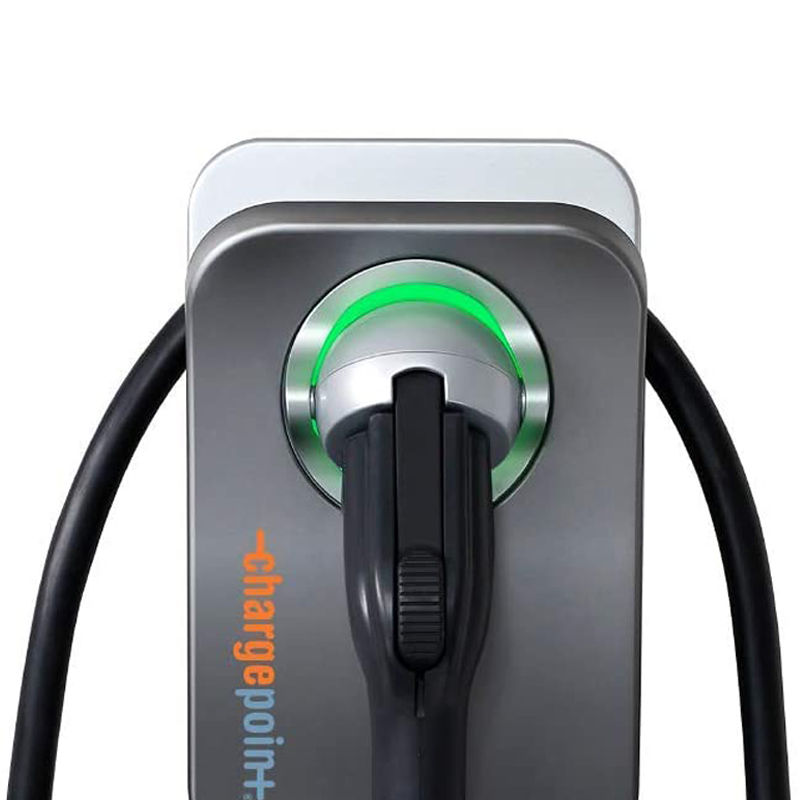
Today, there are many electric cars on sale. Some are small, sporty hatchbacks, while others are compact SUVs. With a wider range of battery options, they are cheaper to manufacture and easier to charge. Electric vehicles are growing rapidly as a result.
The BMW i3, Nissan Leaf, Hyundai Ioniq and Volvo XC40 are some of the most popular new electric cars. Each model is available in a range of sizes, and all have features that are comparable to their gas-powered counterparts.
The BMW i3 hybrid hatchback is a full electric vehicle. It will be sold in the United States. It will be equipped with a cab forward greenhouse, unique slipstream rear ends, and 8-cylinder engines at the front. It is expected cost to be around $44,450.

The Chevy Bolt EV has a sleeker design than its predecessor and will offer 259 miles of range for $36,500. The vehicle will be equipped with Super Cruise driver assistance and a DC fast charger station. The SUV version, the Chevrolet Bolt EUV, will have a longer wheelbase and a lower price than its cousin.
The EQE is a mid-sized SUV which shares its platform and the EQS sedan. It has a 400-volt lithium battery that gives it a maximum tow capacity of 3,500 pounds. This makes it an ideal competitor for the Tesla Model Y. The top-spec Enyaq will travel 300 miles on a full charge. It will be a practical family car with a quality cabin and five individual design options.
The Ford Mach-E is available in multiple trim levels. Base model is $42,895 and GT Performance has 634 lb-ft. The battery can be upgraded to a 100-kWh, a 75-kWh, or a 130-kWh option. An EMotion sedan is available with a solid-state 400-mile battery. Since its debut in 2021, the car has received a lot of praise.
The MG 4 family hatchback offers great performance at a reasonable price. The MG 4 is equipped with quick charging and an easy-to-use infotainment system. It features a sharp, modern styling and is easy to drive. This vehicle is an excellent choice for anyone looking to travel the world in a sustainable manner.

The Genesis GV60, a compact fully-electric SUV, rides on the same EGMP platform as Kia EV6. The car is spacious and has a quality cabin. It will be available in 2023 with luxury safety features and other equipment. It will be available in a subscription package that includes maintenance, insurance, and other services.
Polestar, one of the newer car companies, has joined the electric vehicle revolution. Polestar 3 SUV will have an estimated range of 270 miles and come with all-wheel drive, dual motor configuration and safety features. In 2023, Polestar will have a wider product range.
FAQ
What are the basics of car mechanics?
To work as an auto technician, you don’t need to know much about cars. All you need to know is how to fix things. This is why most people get started with simple jobs such as changing brake pads or tires. Then they move on to more difficult repairs.
You'll need the ability to read and understand diagrams and to follow simple rules of good practise. It is also important to know how to determine if parts are damaged or need to be replaced.
It's important to remember that you shouldn't attempt to repair vehicles without having received proper training and guidance. This is especially important if you work with expensive parts such as transmissions or engines.
In fact, even though you won't need to know much about cars, you will need to thoroughly know the basics of mechanical engineering and physics. This means understanding the principles behind how engines work and how brakes function.
It is also important to remember that you will need to be able to handle many situations. If your vehicle has been in an accident, you might need to be able to handle it. Additionally, you will need to have experience with handling accidents and breakdowns.
It is important to be open to learning new skills quickly. It is important to be able both to diagnose problems and perform simple maintenance tasks, such as tightening nuts.
How long does an automotive course take?
A three-year course in automotive is required.
The first year focuses on theory and learning about cars. The second year is spent on practical training where you learn how to drive, fix engines, and do other mechanical jobs around the car. The final year includes a placement at an auto shop. This gives you real-world experience fixing real problems.
Is it important which college I go?
It's not true. There is no difference in the programs offered by colleges for getting into automotive work. However, some schools offer better programs than others so if you're looking for something more specialized, look elsewhere.
What qualifications do I need to become a mechanic?
You will need to pass several exams in order to become a mechanic. These exams include:
-
A general knowledge assessment
-
A practical exam
-
An apprenticeship test
These tests are designed for you to understand the basic concepts and principles of mechanics before your start as a technician.
Once you've passed these tests, you'll be eligible to work as a mechanic. You'll still need an apprenticeship. This will involve training in the trade.
To learn all you can about vehicle repair, you will need to take classes and workshops. Experienced mechanics will also be required.
For mechanic success, you'll need to be focused and meticulous. It is essential to pay attention to all aspects of vehicle repairs.
You'll need patience and persistence to become a successful mechanic. If you don’t like following directions, then this career path may not suit you.
This job is for you if you are passionate about cars and love fixing them.
What is the best career for an automotive mechanic?
If you are determined to excel, the automotive industry offers many opportunities. This field requires hard work and the willingness to learn from others.
Because you will be spending most of your time communicating with customers and employees, you will need excellent communication skills. It is important that you are willing to travel, work long hours and be able to commute.
Consider taking classes at local universities or community colleges if your goal is to pursue a career in the automotive industry. Many schools offer programs specifically designed for students interested in auto repair, sales, or customer service.
Mechanical engineering is a good choice if you are interested in pursuing a degree. It is possible to earn a bachelor’s degree in only four years.
Many employers will hire graduates straight out from school. So, it is wise to begin searching for employment while you are still able to study part time.
Once you've completed your education, you'll probably need to complete some form of training before being able to take up a position as an automotive technician.
This means that you will need to pass tests such as the Automotive Excellence (ASE) certification exam. This test covers topics such engine maintenance as brakes, steering, suspension, etc.
Once you pass the ASE test, your license can be applied for by the National Institute for Automotive Service Excellence.
A license allows you to perform repairs on vehicles owned by private individuals. Based on the services rendered, you will receive compensation.
It is important to remember that not all states require licensing. If you intend to work in another state, however, you will need a license.
Some states do not issue licenses until they have received a certain amount or training. If this is you, you may need another option.
What is the average time it takes to become a mechanic?
It takes years of practice and experience to become an expert mechanic. Working under the guidance of a professional mechanic is the best way to learn how repair cars.
You'll have to spend time at a garage learning all you can about cars and mechanics. You will need to be familiar with mechanical engineering books about mechanics, car design, and other topics.
Auto school is also required.
It is important to get started early. To learn about automotive technology, don't wait to be older. If you want to qualify as a mechanic, get started now!
Statistics
- According to the BLS, the median annual salary for automotive service technicians and mechanics in the United States was $44,050 in May 2020. (uti.edu)
- Apprentice mechanics earn significantly less hourly than mechanics who have completed training, with a median wage of approximately $14.50 an hour, according to PayScale. (jobhero.com)
- There were 749,900 jobs available for automotive service technicians and mechanics in 2016, which is expected to grow by six percent through 2026. (jobhero.com)
External Links
How To
How to properly diagnose your vehicle for repair
Before you can determine if your car requires repairs, it's important to first analyze the symptoms. Follow these steps to properly diagnose your vehicle.
-
Check engine lights. You should inspect the dashboard lights, such as the engine light indicator and the oil pressure gauge. Also, check the battery light indicator. It could indicate that your vehicle is having problems.
-
Take a look at the treads. Tires with worn treads could cause problems when handling or braking. The treads of the wheels should be inspected as well. They should be clean and smooth. This can be done by removing the wheels from the vehicle and taking them off. To check the condition of your treads, use a flashlight.
-
Check the level of brake fluid. You must always monitor the level of your brake fluid. This will ensure your brakes function properly. Your brakes may fail if the brake fluid level drops.
-
The suspension system should be tested. Most vehicles have a suspension system that absorbs shocks and vibrations. It allows for better control, smooth acceleration, and deceleration. Your vehicle might feel wobbly, or shake uncontrollably if it has a bad suspension. Try putting some weight on your front or rear axle to determine if you have a suspension problem.
-
Examine the steering column. The steering column connects the steering wheel to all other components of the vehicle. Many accidents can cause damage to steering columns. If yours feels loose or shaky, you should replace it.
-
Observe the exhaust pipes. Exhaust pipes move gases from combustion chamber to atmosphere. If the exhaust pipe is damaged or leaks, harmful fumes can enter your cabin. It is also important to repair any bends in your tailpipe immediately.
-
Check under the hood. If you see anything unusual, take a look under the hood. There could be fluid leaking from your engine. In addition, if you notice an unusual smell coming from your engine compartment, you should contact a professional technician.
-
It is important to inspect the air filter. The outside environment can collect dust and other debris in your vehicle's air filters. Your vehicle will run less well if it has a dirty filter. Replace your air filter regularly.
-
Check the fan belt. The fan belt is the link between the engine and the transmission. The engine will not turn if the fan belt breaks. It's easy to replace the belt. You will need a screwdriver, pliers and a pair of pliers.
-
Make sure you inspect the radiator hoses and hoses. The radiator hose is used to carry water from the radiator to your engine. If it becomes cracked or damaged, it can leak hot liquid onto the engine. To repair the hose, you will only need to use a pair needle-nosepliers and a wire brush.
-
Check the windshield wipers. Windshield wipers use electricity for snow and rain removal. If they stop working, they could leave streaks on your window glass. You can fix the problem by changing the washer fluid.
-
The battery cables should be checked. The batteries provide power to the electrical systems within your car. Before you change batteries, disconnect the positive cable. Failure to do so can damage your alternator.
-
Check the headlights. Headlights illuminate the road ahead of you. Poor visibility can result if the headlights don't function properly. Check the bulbs to see if they've burned out.
-
Always check your lights. When you approach them at night, the lights warn other drivers. It could cause distraction and even lead to an accident if it doesn't work.
-
You should inspect your brakes. Before you get in a car accident, your brakes will be slowing down your vehicle. If they aren't working correctly, you could lose control of your car and crash.
-
Change the oil. Keep your engine lubricated with oil. It prevents metal parts from rusting too quickly. It is recommended that you change your oil at least once per month.